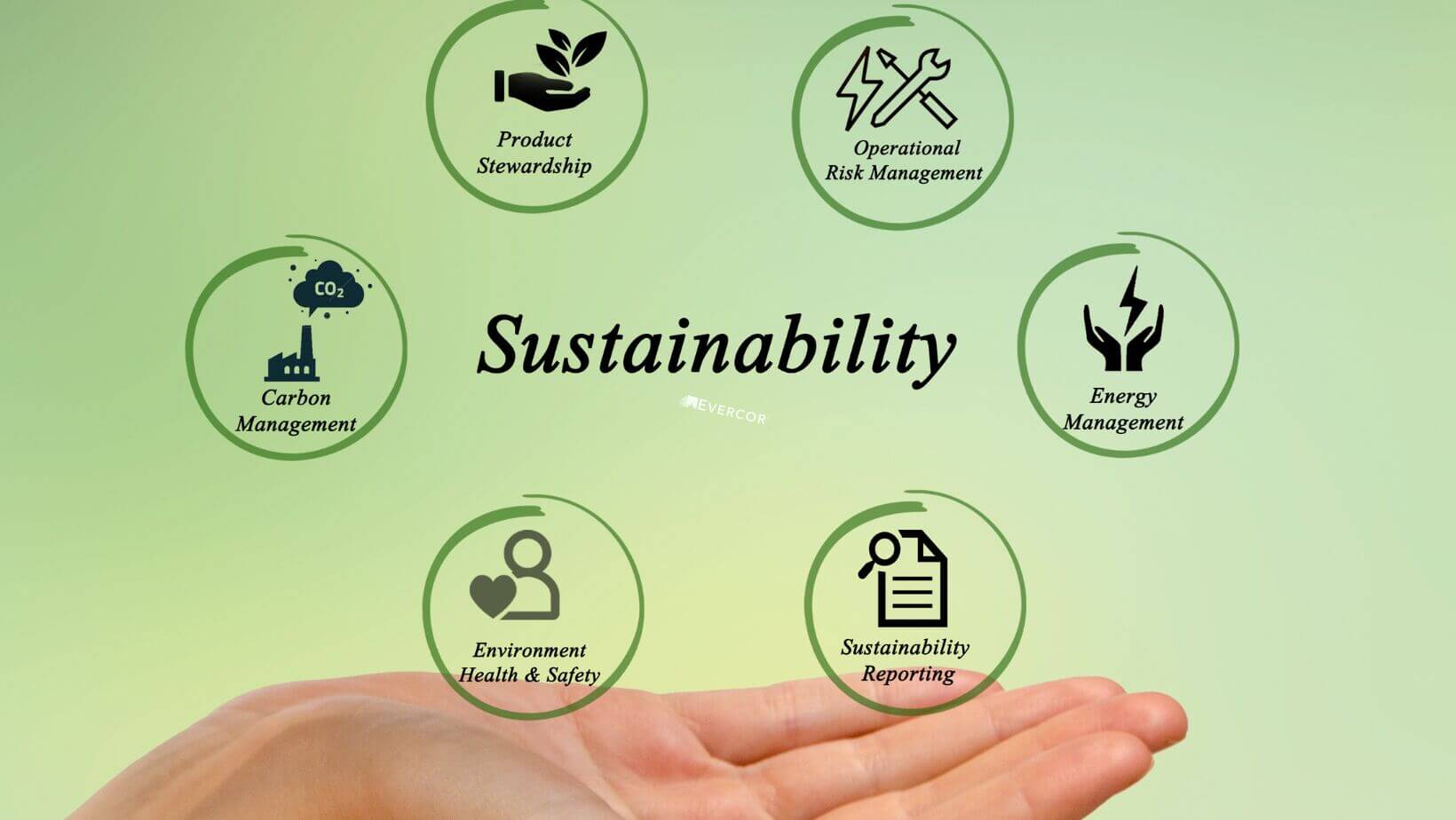As the world of work continues to evolve rapidly, so must facility and property managers. From ecological considerations to smart building technologies, there are a number of emerging trends that will shape our workspaces in 2023 and beyond.
Understanding these changes ahead of time is key to stay current with industry best practices and ensure your organization’s facilities operate optimally for years to come. In this blog post, we’ll take a look at what’s driving change, how it might affect you as a facility or property manager, and some steps you can take now to get ready for what’s coming down the pike.
Challenges Facing Facility Management in 2023
How to effectively manage facilities remotely will be one of the greatest issues facility managers will confront in 2023. Many businesses are looking for solutions to automate and streamline processes without compromising quality or customer service as more individuals than ever work from home.
![]() Facility managers will need to find ways to reduce overhead costs while also maintaining high efficiency within their buildings. Additionally, as technology continues to evolve, facility managers will need to stay ahead of the curve by investing in cutting-edge solutions that allow them to keep up with the ever-changing needs of their tenants.
Facility managers will need to find ways to reduce overhead costs while also maintaining high efficiency within their buildings. Additionally, as technology continues to evolve, facility managers will need to stay ahead of the curve by investing in cutting-edge solutions that allow them to keep up with the ever-changing needs of their tenants.
Another challenge facility managers may face in the near future is finding ways to reduce energy consumption within their properties. As environmental concerns become increasingly prominent, more businesses are looking for ways to reduce their carbon footprint.
This means implementing energy-efficient lighting systems, installing motion sensors that turn off lights when not in use, and taking other measures such as replacing windows or insulation with more efficient materials. Not only are these measures good for the environment but they can also help lower operational expenses over time.
Facilities Management Trends for 2023
![]() One trend gaining traction in the facility management industry is using data-driven insights to make building operations decisions. By leveraging analytics tools such as occupancy sensors or predictive analytics software, facility managers can better understand how their buildings are being used and where improvements might be needed. This data can then be used for everything from scheduling maintenance activities and optimizing energy consumption levels to improving tenant satisfaction and regulatory compliance.
One trend gaining traction in the facility management industry is using data-driven insights to make building operations decisions. By leveraging analytics tools such as occupancy sensors or predictive analytics software, facility managers can better understand how their buildings are being used and where improvements might be needed. This data can then be used for everything from scheduling maintenance activities and optimizing energy consumption levels to improving tenant satisfaction and regulatory compliance.
Another trend that’s becoming increasingly popular among facility managers is automated building inspections using drones or robots equipped with cameras or sensors. These technologies allow inspectors to quickly identify potential safety hazards or areas of concern without having to physically enter each space they’re inspecting, saving both time and money and helping ensure all areas of a building remain compliant with regulations at all times.
Sustainability and Green Initiatives in Facility Management Will Become Even More Important in 2023
![]() Facilities Management will continue to advance in sustainability and green initiatives over the next several years. 2023 promises to be an even more important year for Facilities Management professionals to find ways to reduce costs in energy savings and waste while increasing efficiency. Companies are increasingly investing in “green” technologies because they are cost-efficient and help create a less wasteful environment.
Facilities Management will continue to advance in sustainability and green initiatives over the next several years. 2023 promises to be an even more important year for Facilities Management professionals to find ways to reduce costs in energy savings and waste while increasing efficiency. Companies are increasingly investing in “green” technologies because they are cost-efficient and help create a less wasteful environment.
Facilities Managers should strive to reduce their environmental footprint by implementing environmentally friendly policies, such as promoting composting or building management systems that use renewable energy sources where possible.
Facilities Managers also need to keep up with the latest developments in sustainability so that they can take full advantage of any changes that may happen in the coming years. Facilities Managers must educate their employees about the importance of sustainability in the workplace and make sure that everyone is committed to making their Facilities Management operation as eco-friendly as possible.
The Demand for Skilled Workers in Facility Management Will Continue to Rise in 2023
Facilities management is an increasingly valuable career field that has seen strong demand in recent years, and this trend is projected to continue into 2023. Facilities management personnel specialize in ensuring the smooth functioning of various operations, such as commercial or residential buildings, by coordinating resources and facilities, managing facility contracts and budgets, and maintaining records.
![]() Such roles are essential to optimizing efficiency while also allowing businesses and organizations to stay on budget. As technology advances and more complex facilities become available, professionals with expertise in Facilities Management will be called upon to understand the nature of these systems and manage them effectively.
Such roles are essential to optimizing efficiency while also allowing businesses and organizations to stay on budget. As technology advances and more complex facilities become available, professionals with expertise in Facilities Management will be called upon to understand the nature of these systems and manage them effectively.
This is why skilled facilities management workers will remain essential for businesses that seek improved productivity alongside cost-efficiency over the next year and beyond.
Facility management trends for 2023 indicate that facility managers are beginning to outsource more services to third-party vendors like Evercor. The motivation behind this primarily lies in facility managers wanting to get access to specialized skills that may be lacking from their own staff or within their local labor markets. It also allows facility managers to save costs, as third-party vendors are able to offer competitive rates and often utilize outsourced labor which can further drive down facility operational costs. With many locations already having seen the benefits of outsourcing over the past few years, facility managers across North America are likely continue this trend into 2023 and beyond.
Hybrid Work and Facility Usage Patterns Will Persist
![]() As facility management trends move into 2023, one key factor that will remain is the hybrid work model. With facilities continuing to track and prioritize space usage, security, energy consumption, and custodial staffing hours, investing in dedicated individual workspaces is not feasible when it comes to employees who are only present in the facility a few days a week.
As facility management trends move into 2023, one key factor that will remain is the hybrid work model. With facilities continuing to track and prioritize space usage, security, energy consumption, and custodial staffing hours, investing in dedicated individual workspaces is not feasible when it comes to employees who are only present in the facility a few days a week.
As such, the use of methods such as hot desking, office hoteling and a variety of hybrid scheduling strategies for facility personnel such as custodians and security operators will continue. To maximize facility operations efficiently with this dynamic in mind, facility managers should look towards solutions like Internet of Things (IoT) which can provide actionable data on usage patterns including desk occupancy rates and available capacity from floor to floor. This data can inform smarter facility decisions and pave a better way forward for hybridized workplaces in the coming year ahead.
Asset Management/Retro-Commissioning
![]() It’s no secret that facility systems are not built to last forever, and as they gradually wear and tear, operational efficiency decreases. This comes with a hefty environmental cost; buildings alone create 40% of the world’s annual CO2 emissions.
It’s no secret that facility systems are not built to last forever, and as they gradually wear and tear, operational efficiency decreases. This comes with a hefty environmental cost; buildings alone create 40% of the world’s annual CO2 emissions.
In order to combat these issues, facility management trends are shifting towards recommissioning and retro-commissioning practices. More energy companies such as Pacific Gas & Electric are offering special rebates for qualified companies, and the Capitol campus in Washington D.C. has used retro-commissioning to reduce their building-related greenhouse gas output by 48%. This is an impressive trend that is sure to become increasingly popular throughout the year 2023.
Facility Management in 2023
As we move into 2023, the facility management industry will face plenty of challenges. But by staying up-to-date on emerging trends, such as data-driven decision-making, integrated technology solutions, and new business models, facility managers will be better equipped to meet these challenges and come out ahead in 2023 and beyond!
If you’re looking for a partner that can help you stay ahead of the curve in Facility Management, look no further than Evercor Facility Management. We’re always up-to-date on the latest industry trends and developments, and we’re ready to help you meet whatever challenge comes your way in 2023!
 Facility managers will need to find ways to reduce overhead costs while also maintaining high efficiency within their buildings. Additionally, as technology continues to evolve, facility managers will need to stay ahead of the curve by investing in cutting-edge solutions that allow them to keep up with the ever-changing needs of their tenants.
Facility managers will need to find ways to reduce overhead costs while also maintaining high efficiency within their buildings. Additionally, as technology continues to evolve, facility managers will need to stay ahead of the curve by investing in cutting-edge solutions that allow them to keep up with the ever-changing needs of their tenants.  One trend gaining traction in the facility management industry is using data-driven insights to make building operations decisions. By leveraging analytics tools such as occupancy sensors or predictive analytics software, facility managers can better understand how their buildings are being used and where improvements might be needed. This data can then be used for everything from scheduling maintenance activities and optimizing energy consumption levels to improving tenant satisfaction and regulatory compliance.
One trend gaining traction in the facility management industry is using data-driven insights to make building operations decisions. By leveraging analytics tools such as occupancy sensors or predictive analytics software, facility managers can better understand how their buildings are being used and where improvements might be needed. This data can then be used for everything from scheduling maintenance activities and optimizing energy consumption levels to improving tenant satisfaction and regulatory compliance. 
 Such roles are essential to optimizing efficiency while also allowing businesses and organizations to stay on budget. As technology advances and more complex facilities become available, professionals with expertise in Facilities Management will be called upon to understand the nature of these systems and manage them effectively.
Such roles are essential to optimizing efficiency while also allowing businesses and organizations to stay on budget. As technology advances and more complex facilities become available, professionals with expertise in Facilities Management will be called upon to understand the nature of these systems and manage them effectively. 
